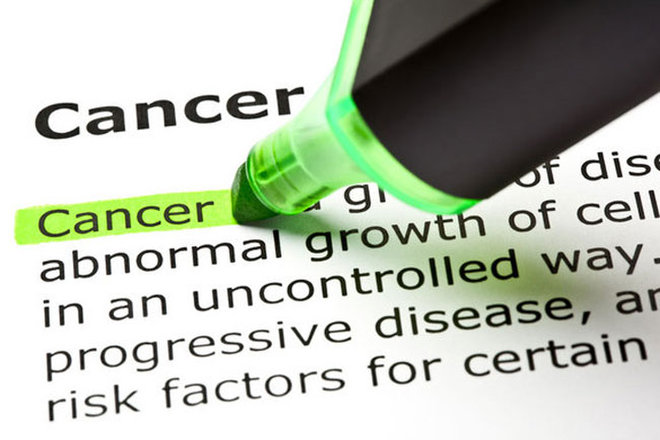By
Many Americans hold the misguided view that alternative therapies alone can cure cancer, even though such methods are not proven to be effective in treating cancer, according to a new survey.
The survey, known as the National Cancer Opinion Survey, was released today (Oct. 30) by the American Society of Clinical Oncology (ASCO), a leading group of cancer doctors. The survey found that nearly 40 percent of Americans said they believed that cancer could be cured solely through alternative therapies, such as oxygen therapy, or use of certain diets, vitamins and minerals.
However, experts stress that these therapies are not recommended as a sole treatment for cancer, as there is little evidence to support their benefit, and they may in fact be harmful if used to replace standard therapies. For example, a 2017 study published in the Journal of the National Cancer Institute found that cancer patients who used only alternative medicine were 2.5 times more likely to die during a five-year period, compared with those who used standard cancer treatments such as surgery, radiation, chemotherapy, immunotherapy and hormone-based therapies.
“There’s no question that evidence-based cancer therapy is necessary to effectively treat the disease,” Dr. Richard Schilsky, chief medical officer for ASCO, said in a statement. ASCO commissioned the survey, which was carried out by The Harris Poll in July and August 2018. [25 Medical Myths That Just Won’t Go Away]
“The vast majority of alternative therapies either haven’t been rigorously studied or haven’t been found to benefit patients,” Schilsky said. “When patients are making critical decisions about which cancer treatments to undergo, it is always best to follow the evidence from well-designed research studies.”
Still, it’s important to note that complementary and alternative medicine (CAM) can play a role in helping cancer patients. Rather than replacing standard therapies, some CAM therapies can be safely used alongside standard therapies to help cancer patients control certain symptoms and side effects, and improve quality of life, according to the American Cancer Society (ACS). Such therapies include acupuncture, massage therapy, meditation, tai chi and yoga. But the ACS agrees that cancer patients who forgo mainstream cancer treatments and instead use alternative therapies are putting themselves at serious risk for harm.
Cancer misperceptions
The new survey analyzed information from a nationally representative sample of 4,887 U.S. adults who were polled on their cancer knowledge and beliefs. Of these, about 1,000 had cancer at the time of the survey or in the past.
The young people in the survey were more likely to believe that alternative therapies alone could cure cancer: Among those ages 18 to 37, 47 percent agreed with the statement that “cancer can be cured solely through alternative therapies,” compared with just 21 percent of adults ages 72 and older.
Among those who had cancer then or in the past, 22 percent believed that alternative therapies alone could cure cancer; and among family caregivers of cancer patients, 38 percent believed that alternative therapies alone could cure cancer.
Other findings from the survey include the following:
- Americans are just as worried about the financial burden of cancer treatment as they are of dying from the disease. The survey found that 57 percent of Americans said that, when faced with a cancer diagnosis, their greatest concern would be the financial impact on their families, or paying for cancer treatment. That’s compared with 54 percent who said they would be most concerned about dying from cancer or experiencing cancer-related pain and suffering.
- Among family caregivers of cancer patients, more than 60 percent said they had taken an extreme step to help pay for their loved one’s treatment, such as dipping into saving accounts, taking an early withdrawal from a retirement account or college fund, postponing retirement, taking out a loan or working a second job.
- Patients living in rural areas often need to travel long distances to see a cancer doctor — on average, rural patients spend about 50 minutes traveling to see their cancer doctor, compared with 30 minutes for non rural patients.
- Most Americans say that opioid drugs for pain should not be restricted for cancer patients. But many cancer patients have trouble accessing opioid drugs for pain: Among a sample of about 150 cancer patients who used prescription opioid drugs for pain or other symptoms, 40 percent said they had difficulty accessing these drugs.
- Most Americans — more than 80 percent — also support the use of medical marijuana for people with cancer. But among a sample of about 70 patients who had used medical marijuana in the last year, nearly 50 percent said they had difficulty accessing the drug.
“This survey serves as a barometer of the American people’s views on important cancer-related issues,” Dr. Monica Bertagnolli, president of ASCO, said in the statement. “It’s revealed a number of critical areas we urgently need to address — from correcting widespread misinformation about cancer treatments, to ensuring patients have access to the pain medication they need, to alleviating the financial distress both patients and their loved ones experience too frequently.”
ASCO began the National Cancer Opinion Survey in 2017. Last year’s survey found that many Americans had misconceptions about risk factors for cancer; for example, only 30 percent of Americans knew that drinking alcohol is a risk factor for cancer.
This article was published on Live Science.


